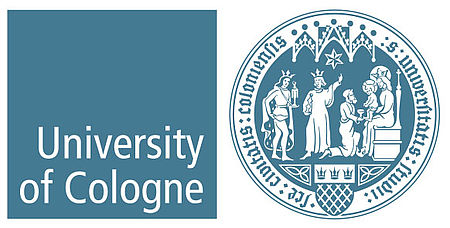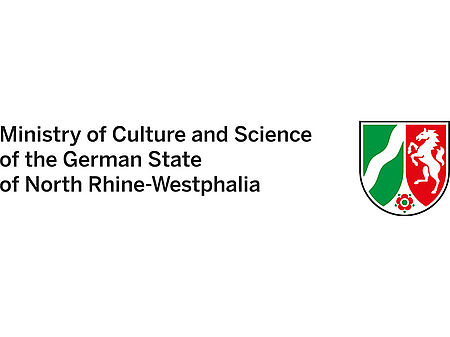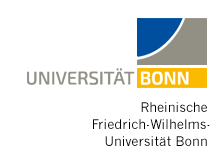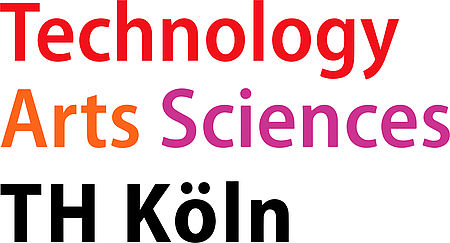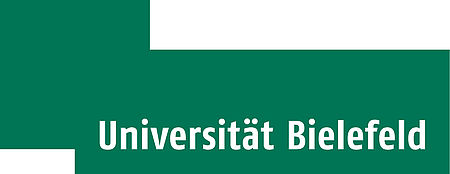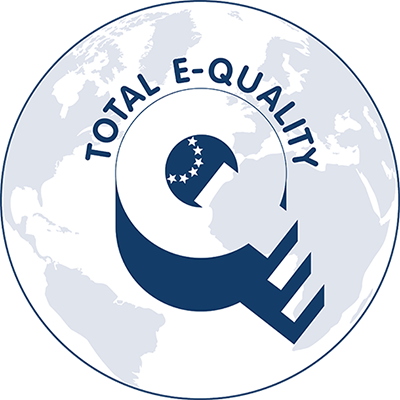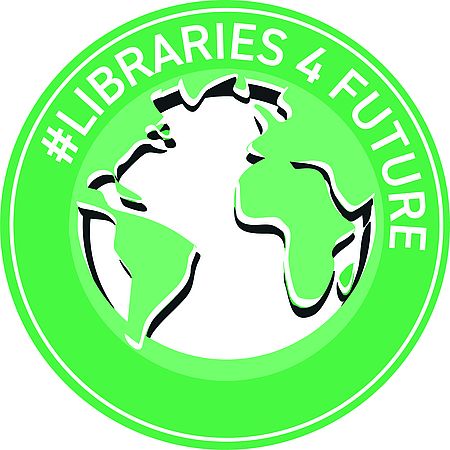Are you looking for an exciting internship in the field of library and information science or would you like to write your thesis in an innovative research area? Then ZB MED is the right place for you! ZB MED - Information Centre for Life Sciences offers motivated students a wide range of opportunities to gain valuable practical experience and implement their own scientific projects. On this site you will find current vacancies for internships in the library and information science department and research as well as topics for Bachelor's and Master's theses.
Current vacancies for internships and theses:
Research department: research group information management
Library and information sciences department
Internships and theses in research
Research group Information Management
The Information Management research group develops methods for text mining, semantic search and research data management in the life sciences. You can find all information here.
Do you have further ideas for theses and internships in this research area? Then we look forward to receiving your initiative application to Prof Dr Juliane Fluck.
Master’s Thesis or Internship – Question Answering and Chatbot Development
This project focuses on the development of a system for automatically answering medical user queries. The goal is to reliably identify relevant, non-sensitive medical documents based on natural language input. The work involves the design and implementation of two possible approaches: the development of a classical question answering (QA) system, or the use of large language models (LLMs) to translate user queries into structured search expressions. Both methods are to be analyzed and compared with regard to their effectiveness and practical applicability.
- Are you interested? Send your application for this vacancy to Johannes Darms.
Bachelor’s Thesis or Internship – Information Extraction and Named Entity Recognition in the Medical Domain
This project aims to develop and test methods for automated information extraction and named entity recognition (NER) in medical texts. One possible use case is the detection and normalization of digital research identifiers such as DOI, ORCID, ROR, and ISNI, which are often inconsistently formatted in practice. In addition, the project may address the identification of medical entities—such as diseases or clinical conditions—in unstructured or semi-structured texts. These entities could then be mapped to standardized terminologies such as ICD, SNOMED, or LOINC. Rule-based approaches, traditional machine learning models, or modern deep learning techniques may be applied. The objective is to evaluate and further develop the approaches in terms of accuracy and real-world applicability.
- Are you interested? Please send your application for this vacancy to Johannes Darms.
Bachelor's thesis or Internship - Data Normalisation in the FAIR Ecosystem
Data normalisation is a major challenge within the FAIR ecosystem. Unique identifiers are essential for referencing researchers, research organisations and research outputs, but are not always explicitly provided. The task is to develop automated methods to correctly match identifiers, such as finding the DOI for a bibliographic reference, associating institutional addresses with the correct ROR and ISNI codes, and linking researcher names to their corresponding ORCID. While this issue may seem straightforward, real-world inconsistencies make it complex and worthy of further investigation.
- Are you interested? Please send your application for this vacancy to Johannes Darms.
Master’s Thesis or Internship – Data Integration and Schema Matching in Medical Research
Medical research data is often stored in different formats such as XML or JSON, each with its own and sometimes widely varying schema definitions. A central challenge of data integration is identifying structural and semantic correspondences between source schemas and a unified target schema. Since exact one-to-one mappings are rarely possible in practice, transformation rules must be developed and—ideally—generated automatically. The goal of this thesis is to model such rules using modern methods and apply them to real-world data. Particularly promising in this context are recent advances in large language models (LLMs), which can be used for semantic translation and structural harmonization. Their potential role in schema matching and data integration will be explored as part of this work.
- Are you interested? Send your application for this vacancy to Johannes Darms.
Internship – Frontend Development for the Health Study Hub
The Health Study Hub is a central component of Germany’s national research data infrastructure for health data. The platform provides a comprehensive overview of the medical research landscape and is continuously being enhanced to offer new features and user-friendly services for researchers and clinicians. Students with an interest in frontend technologies—particularly TypeScript and React—have the opportunity to actively contribute to the design of modern web applications within this internship. Working closely with experienced developers and UX specialists, interns will gain practical experience in an agile and research-oriented environment. The internship offers flexible working hours ranging from 4 to 19.5 hours per week and is aimed at motivated students who want to apply and expand their technical skills while contributing to digital health research.
- Are you interested? Please send your application for this vacancy to Johannes Darms.
Bachelor’s Thesis or Internship – Variable-Level Metadata Cataloging
One of the core goals of the FAIR principles is to ensure the reusability of already collected research data. While access to such data is rightly protected by legal and technical frameworks, the process of obtaining usage rights is often time-consuming and resource-intensive for both data requesters and data providers. To make this process more efficient, data requests should ideally only be submitted when there is a clear potential benefit. For this, data consumers must be able to assess the relevance, quality, and structure of available data prior to the actual request. Variable-level metadata plays a crucial role here—providing information about which variables were collected, how they are coded, and in what format they are stored. This project involves conducting a systematic literature and technology review to identify and analyze existing tools and services for variable-level metadata cataloging. The goal is to evaluate current approaches, highlight open challenges, and identify directions for future development.
- Are you interested? Please send your application for this vacancy to Johannes Darms.
Internship or student job – Front-end development for the Terminology Service Suite
The Terminology Service Suite is a collection of interactive widgets. They are designed to facilitate the integration of terminology data into third-party applications. The widgets are developed with React and TypeScript. They can be used in third-party services such as the Health Study Hub. The Terminology Service Suite widgets use data from terminology services. They help data repositories or annotation services to provide FAIR data for their users. By adding the widgets enables support for the semantic search for research data. You will work with experienced software developers and gain practical experience on this project. You can choose to work between 4 and 19.5 hours per week, depending on when you are free. This opportunity lets students do important work in a modern and research-focused environment.
- Are you interested? Please send your application for this vacancy to Roman Baum.
Internship or student job – Datamining Pipeline for SEMLOOKP
SEMLOOKP was originally a collection of biomedical terminologies and ontologies (a special kind of vocabulary), as well as a terminology search service. The aim was to provide central access to their latest versions, making it suitable for searching concepts and providing information about them. Today, SEMLOOKP is a web framework for various domain-specific terminology services. The words used are added to and updated regularly. To help curators, we can develop pipelines to keep the data in SEMLOOKP up to date. Information from different places is put together and made consistent. You will work with experienced software developers and gain practical experience on this project. You can choose to work between 4 and 19.5 hours per week, depending on when you are free. This opportunity lets students do important work in a modern and research-focused environment.
- Are you interested? Please send your application for this vacancy to Roman Baum.
Internship or student job – Federated search engine and data harmonisation
The TS4NFDI API Gateway is a federated web-service. Which means that the API Gateway is an advanced, dynamic solution designed to perform federated calls across multiple Terminology Services within NFDI and beyond. It is particularly tailored for environments where integration and aggregation of diverse data sources are essential. The service offers search capabilities, enabling users to refine search results based on specific criteria, and supports responses in both JSON and JSON-LD formats. The API Gateway is developed in Java. You will work with experienced software developers and gain practical experience on this project. You can choose to work between 4 and 19.5 hours per week, depending on when you are free. This opportunity lets students do important work in a modern and research-focused environment.
- Are you interested? Please send your application for this vacancy to Roman Baum.
Internships and theses in the library and information sciences department
In the department of library and information sciences we currently offer:
- Practical phase in the Bachelor's program "Library Studies and Digital Communication" at TH Köln, duration approx. 5 month
- Practical phase in the Bachelor's program „Data and Information Science“ at TH Köln, duration approx. 5 month
- Pracitcal phase in the Machelors program „Informatik“ at Hochschule Bonn-Rhein-Sieg, duration approx. 10-12 weeks
- Internshios for the MALIS program at TH Köln, duration approx. 2-4 weeks
Are you interested? Send your application to Dr. Miriam Albers.

